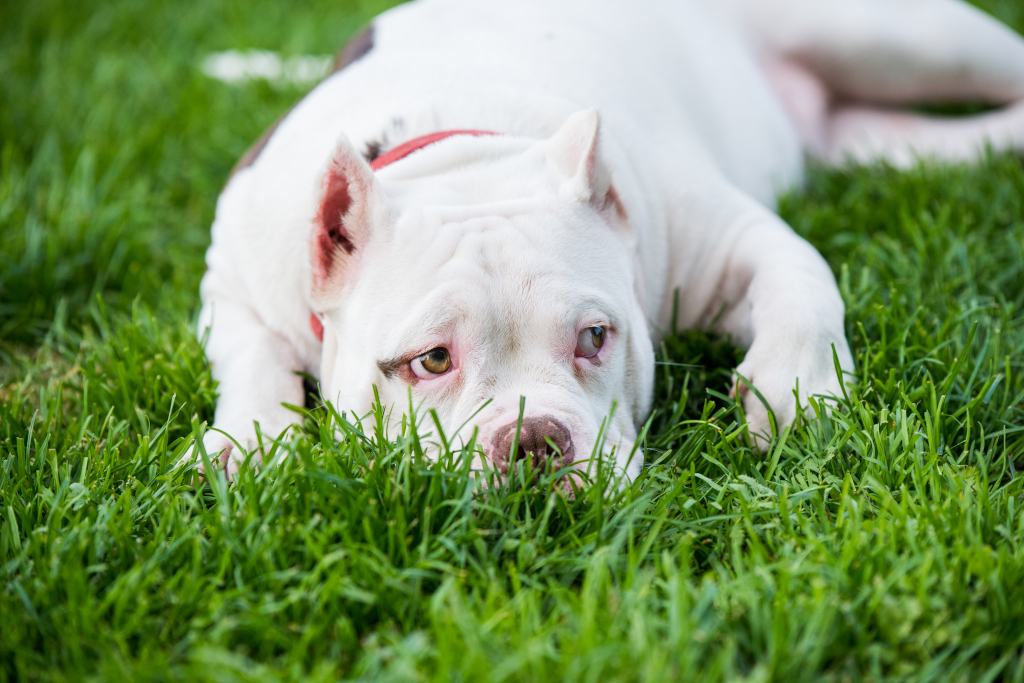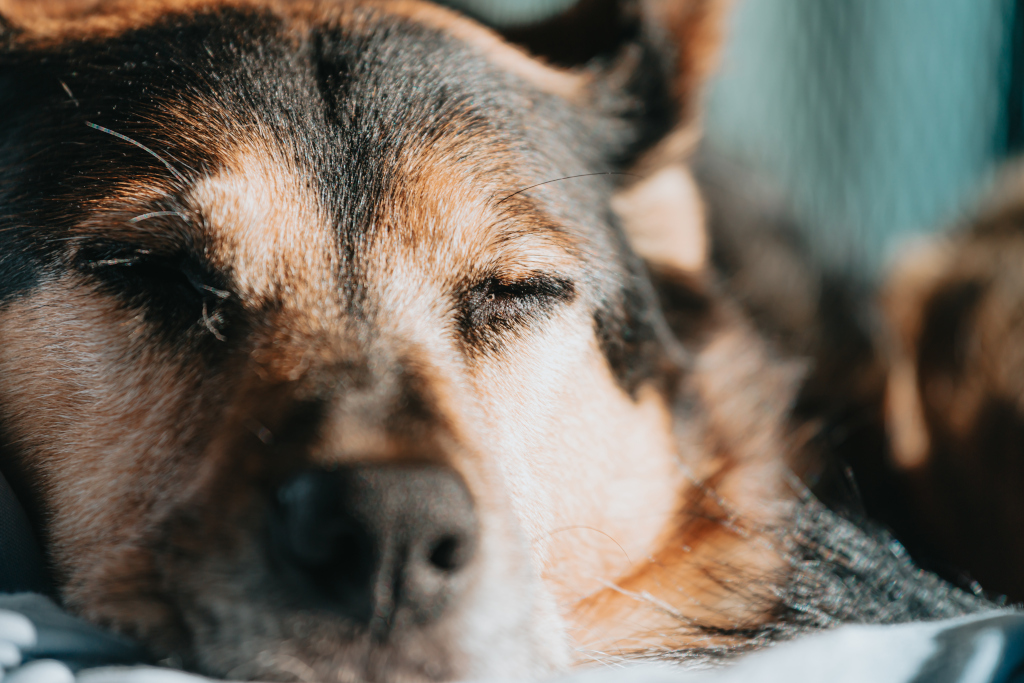It is common knowledge that dogs are as powerful and energetic as they can be.
However, they aren’t immune from muscle soreness!
That’s right, like humans, dogs can get sore from a vigorous hike or other intense outdoor activities.
Why is Your Dog Experiencing Muscle Soreness After Hiking?

As you may have already known, the most common reason for muscle soreness that we experience is overuse, in which the muscles are being stretched or contracted more than they are accustomed to.
And this happens when you exercise too much.
Dogs are no different.
They have the same issues that we do when it comes to being overworked on an outing. Your dog’s muscles can fall victim to running downhill or uneven terrain, jumping off rocks, or walking for too long. All these factors contribute to your dog’s sore paws.
What Are the Signs Of Sore Muscles in Dogs?
You might wonder if your dog is experiencing muscle pain and stiffness after an extended hike or walk. Here are some obvious signs that might clue you in to the fact that your dog is feeling sore and uncomfortable.
1. Limping
One of the most common symptoms is limping, in which they will favor one of their legs significantly more than the other.
2. Less Energetic Than Usual
Your dog acts differently than normal when they come back from hiking. For instance, your pup may seem tired, sluggish, less energetic, moving around slower than before, refusing physical contact, or not wanting to go on nature walks with you even though they love those activities.
3. Your Dog Is Easily Angered
Your pup is usually happy-go-lucky but suddenly becomes cranky and irritable. Also, your fido just wants to lie down and refuse to do anything they usually do, such as playing with their favorite toy.
4. Whimpering, Whining, and Crying
Have you been noticing your dog whining more than usual? Perhaps they are crying out in pain, and it seems like the smallest things could hurt them, such as getting up from their bed, walking around, moving their legs, or jumping up onto something that they typically can reach.

5 Ways to Reduce Muscle Pain and Stiffness in Your Dog
1. Don't Be a Weekend Warrior!
Most dog owners love to fit the whole week’s worth of exercise into the weekend. But this is a big no-no! Instead, you would want to spread out your furry friend’s physical activities throughout the entire week.
2. Be Realistic With Your Dog's Fitness Level
Before hitting the trails, you should have a good plan and know your dog’s limitations and how far or long your canine can hike! For instance, if they can’t handle a 20-mile hike, don’t make them do it anyway!
3. Build Up the Mileage
If your dog is new to hiking with you, take it easy! It is essential to build up their endurance and fitness levels gradually. Start slow and hike on easy terrain, then increase the difficulty as your pooch gets stronger and more fit in general.
Read More: Tips for Training Your Dog for Hiking
4. Give Your Dog Plenty of Breaks!
Use common sense when it comes to taking your dog with you on hikes. For example, if your pup seems tired, take a 5- to 10-minute break or more if needed and give them plenty of water.
5. Rest Your Dog
Make sure to allow some time off from vigorous physical activities for your dog to recover and get back on their feet again, even though they look just fine. That is not only beneficial for your pup if they are suffering from sore muscles, but it also gives their body time to repair and heal itself so they can continue being an active member of your family!
The Bottom Line
Dogs can get sore muscles after hiking. So, please don’t push your four-legged friend to their limits and make them do too much at once.
Avoid weekend warrior syndrome and spread out the exercise throughout the entire week so that you don’t overwork your dog’s muscles. And be sure to give them plenty of breaks on the trail.
Remember, hiking is supposed to be fun for both you and your canine hiking partner!

